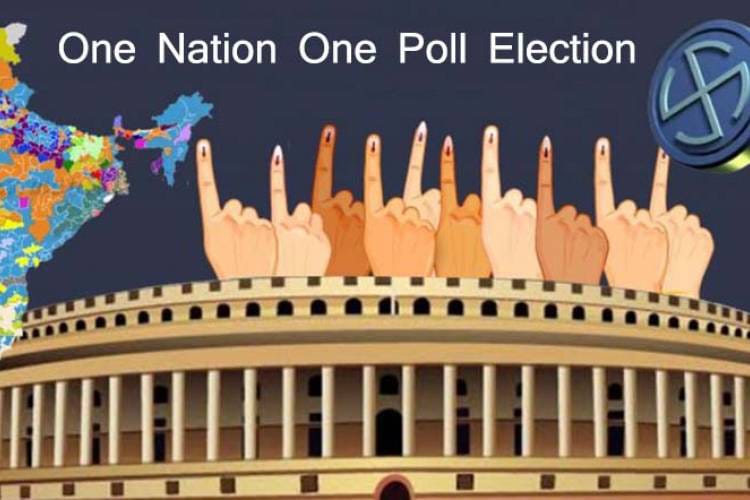One Country, One Election
The Modi government has approved the ‘One Nation, One Election’ plan, aligning Lok Sabha and state assembly polls. A constitutional amendment is needed for its implementation. A committee was formed for One Nation One Election, whose chairman was former President Rammanath Kovind. Kovind gave his report on this to the Modi cabinet, after which it was approved unanimously. However, the journey ahead is not going to be easy after this. Constitutional amendment and approval of the states are also necessary for this, and only after that will it be implemented.
Now the central government will bring it in Parliament in the winter session. However, this is a constitutional amendment bill and the consent of the states is also necessary for this. In the 2024 general elections, BJP had promised One Nation One Election. Prime Minister Narendra Modi has been advocating One Nation-One Election for a long time.
PM Modi had once said: “I request everyone to come together to achieve the resolution of one country one election. This is the need of the hour. The government does not want to be in election mode every year. There should not be politics for the entire five years”.
One Nation, One Election means that all Indians will vote in Lok Sabha and Assembly elections to elect representatives of the Center and the State simultaneously or in the same year. Not only this, as soon as the One Nation One Election is implemented, elections of Municipal Corporation, Municipality, Nagar Panchayat, and Gram Panchayats will also be held simultaneously. Modi government claims that with the implementation of this proposal, all elections will be held at the same time in the whole country, which will simplify the electoral process and save time. Constitutional amendment will be necessary to implement the bill related to this and the consent of the states will also be necessary for this. So in such a situation, it becomes important to know which parties are in favor of ‘One Nation, One Election’ and which parties are against it. The panel formed under the leadership of former President Ram Nath Kovind had discussed the ‘One Nation, One Election’ proposal with 62 political parties of the country and sought their opinion. After discussions with the representatives of 18 parties, the panel submitted its decision and its conclusions to President Draupadi Murmu. According to the report, out of 47 political parties, 32 supported this initiative, while 15 opposed it.
4 national parties of the country opposed ‘One Nation, One Election’. These include Congress, Aam Aadmi Party (AAP), Bahujan Samaj Party (BSP), and Communist Party of India (Marxist) or CPI (M).
The two national parties included in the NDA, BJP and the allies of Conrad Sangma-led National People’s Party (NPP), have got support. These supporters include AIADMK, All Jharkhand Students Union (AJSU), Apna Dal (Sonelal), Assam Gana Parishad, Lok Janshakti Party (Ram Vilas), National Democratic Progressive Party (Nagaland), Sikkim Krantikari Morcha, Mizo National Front and United People’s Party Liberal of Assam. Janata Dal (United), which left the opposition INDIA Mahagathbandhan and joined NDA, has also supported this initiative. Other key NDA members like the Biju Janata Dal, a faction of Eknath Shinde’s Shiv Sena that is in alliance with the NDA, and the Akali Dal, have extended their support to the ‘One Nation-One Election’ proposal.
I believe that ‘One Nation, One Election’ will not only simplify the electoral process but will also promote political stability and development in the country.
Its implementation will save resources and promote development and social harmony. This will further strengthen the foundation of democracy and will help in fulfilling the aspirations of the country.
But my basic question is will the assemblies whose tenures have not been completed be forcibly dissolved before time? Or will the tenures of those whose tenures have been completed be extended? Or will President’s rule remain in force during the remaining period? There are many such questions, whose answers are yet to be found. In such a situation, there is every possibility of political conflict increasing on this issue due to this step of the government.
Article written by and Editorial credit: State Bureau Chief Himanshu Nauriyal.
